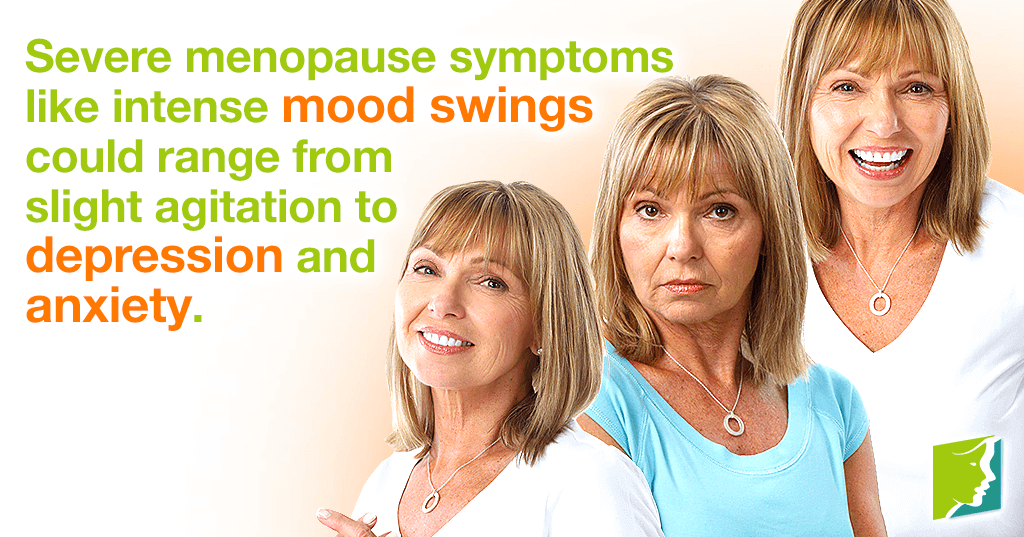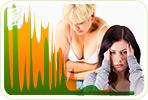Menopause's arrival is often accompanied by an assortment of symptoms that affect each woman differently. Some women experience no symptoms, some only mild menopause symptoms that do not disturb their lives. For others, though, their experience of menopause and its symptoms can range from merely uncomfortable to extreme and life-changing. It is important that you recognize which symptoms are normal and the degree of intensity you can expect from each one of them.
Normal Menopause Symptoms
Below is a list of common menopause symptoms. Most women will experience one or more of these with varying degrees of intensity.
- Hot flashes
- Vaginal dryness
- Palpitations, skipped heartbeats
- Painful intercourse
- Night sweats
- Dry skin and skin changes
- Mood swings
- Urinary problems
- Hair thinning or loss
- Allergies
- Decreased libido
Severe Menopause Symptoms That Can Lead to Complications
Below is a description of severe symptoms that, by significantly affecting a woman's life, can lead to complications during menopause.
Depression and anxiety. Midlife is a time when women are generally considered to be more at risk of experiencing episodes of depression and anxiety due to a combination of hormonal changes and associated symptoms. Compared to depression experienced in premenopausal women, postmenopausal depression tends to be more severe and unfortunately more resistant to conventional antidepressants. When HRT is combined with antidepressants, depression is more likely to be eased. It is very normal for woman to experience a mental reaction to the stressful hormonal shifts that occur around menopause. However, if you think you are suffering from depression or anxiety, it is important to talk to your doctor about the various treatment options.
Sleep problems. Likewise, another severe menopause symptom is sleep deprivation. It is thought that over 60% of women going through menopause suffer from some degree of insomnia. This can lead to irritability, mood swings, and a weakened immune system.
Relieving Severe Menopause Symptoms
Although experiencing menopause symptoms is normal, adapting often requires women to make lifestyle changes. Some remedies that might help you adjust include:
Maintain a healthy diet and engage in regular exercise to relieve symptoms triggered by menopause.
Many alternative medicines exist that are known to help counteract menopausal symptoms. Some herbs can even help balance hormone levels.
However, if you experience any of them or more severe symptoms, or find that menopause symptoms seriously affects your quality of life, it's recommended to contact your doctor. Read on for more information about treatment for menopause symptoms.
Sources
- BMJ Group. "Menopause: What is it?" Patient Leaflet. 2007.
- Hopkins, Virginia. Lee, John R. M.D. What Your Doctor May Not Tell You About Menopause. New York: Warner Books Inc., 1996.
- Love, Susan M.D. Menopause and Hormone Book. New York: Three Rivers Press, 2003.
- Martin, Raquel. The Estrogen Alternative. Rochester, VT: Healing Arts Press, 2000.




